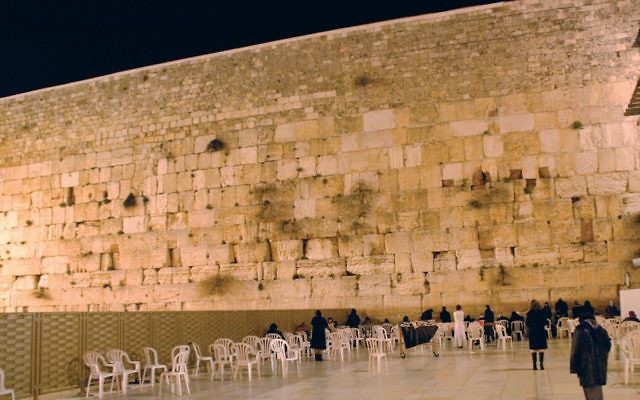Our View: Embassy to Jerusalem
Putting the U.S. Embassy in the western part of Jerusalem would force the Palestinians to negotiate.

Another waiver deadline for the 1995 Jerusalem Embassy Act has come and gone, but as the AJT went to press Tuesday, Dec. 5, we still had no clarity on U.S. policy regarding the capital of Israel.
Leading up to the deadline — Dec. 1, pushed back to Dec. 4 to avoid a Friday — news reports reflected the lack of decisiveness in President Donald Trump’s administration.
Someone would leak word that after two decades of presidents from Bill Clinton to Trump signing waivers every six months, Trump was ready to make good on his campaign pledge to move the U.S. Embassy from Tel Aviv to Jerusalem. Someone else would promptly leak news that, no, Trump would sign the waiver for reasons of national security.
Of the many ways Israel is treated differently from every other nation in the world, none is more aggravating and insulting than the refusal of countries to recognize Israel’s right to declare any city it governs as its capital.
No nation puts its embassy to the United States in New York, refusing to recognize Washington, even though the U.S. government used to be based in New York and Washington was on the edge of disputed territory in a bloody conflict only 155 years ago.
But although Israel has its government in Jerusalem, has held at least a portion of the city throughout its nearly 70 years and, of course, has historical claims going back more than 3,000 years as the nation-state of the Jewish people, the foreign embassies are in Tel Aviv, Israel’s version of New York.
The only justification for the refusal to put the U.S. Embassy in Israel’s actual capital is that such a move would upset the Palestinians, other Arabs and other Muslims. We might see riots across the Arab world and protests at U.S. diplomatic offices, and the Palestinians promise the death of the peace process.
Except there is no peace process. Regardless of Israel’s desire to make a deal, no Palestinian leader has shown any interest peace talks.
To the contrary, the Palestinians have seen repeated signs that their obstinance will pay off in some sort of solution enforced by international organizations. Every time the United Nations or any of its agencies passes a resolution rejecting Israeli claims to Jerusalem — not all the holy city, but any of it — the Palestinians can hope that eventually they will gain Jerusalem as their undivided, eternal capital.
Putting the U.S. Embassy in the western part of Jerusalem, an area that is undisputed as Israeli territory by anyone who accepts Israel’s existence, would make a clear American statement that Israel isn’t going away and isn’t giving up Jerusalem. It would show that the United States is not too timid to do the right thing. After the initial uproar, it might even bring the Palestinians back to negotiations by demonstrating that their waiting game won’t work.
It would not eliminate the possibility of a Palestinian state with shared sovereignty over at least part of Jerusalem. The United States could even push that process ahead by simultaneously upgrading its Jerusalem consulate to an embassy to the Palestinian Authority.
But we know what happens if Trump signs that waiver, even if he declares, by speech or tweet, that Jerusalem is Israel’s capital: nothing. No progress, no justice, no satisfaction and no peace.



comments